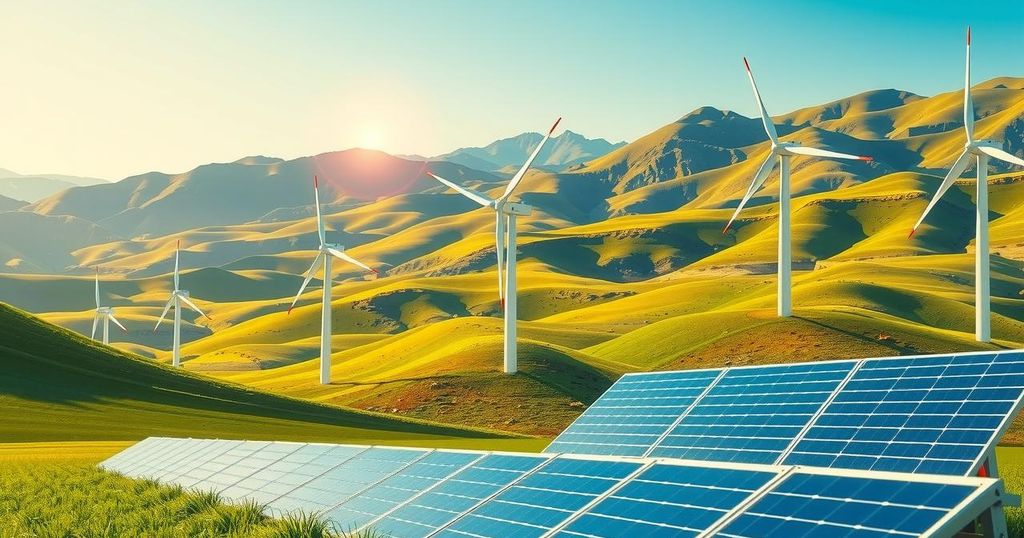Wärtsilä’s report outlines a plan for Nigeria to attain a 100% renewable energy system by 2060, focusing on a mix of 1,200 GW renewable capacity, significant storage, and gas engines. This transition is projected to reduce electricity costs by 74% and eliminate carbon emissions, with universal energy access achievable by 2032. However, it requires substantial investments and policy reforms to mitigate investment risks.
The global technology group Wärtsilä has released a report titled “Nigeria Leading Africa to Net Zero,” which outlines a roadmap for Nigeria to achieve a 100% renewable energy power system by 2060. This initiative aims to help Nigeria meet its increasing energy demands while advancing climate action. A structured, data-driven energy strategy is essential, leveraging advanced modeling techniques to define the most economically viable power system for Nigeria.
Wärtsilä’s report suggests an optimal renewable energy capacity of 1,200 GW, requiring 283 GW of energy storage and 34 GW of engine-based power plants to ensure grid balance. This transition to renewable energy, alongside flexible gas engine support, is predicted to decrease electricity generation costs by 74% by 2060 compared to 2022 levels, ultimately eliminating carbon emissions.
The report highlights the significance of Nigeria’s domestic gas reserves in facilitating a smooth energy transition. Initially, these reserves can serve as an affordable bridging fuel for balancing engines, aiding the integration of intermittent renewable energy until transformation to green hydrogen power plants occurs in the 2040s.
Wale Yusuff, Managing Director of Wärtsilä in Nigeria, emphasized that if this power system roadmap is implemented, Nigeria will achieve a fully decarbonized power system by 2060. Furthermore, universal electricity access could be realized by 2032, rendering current inefficient diesel generators obsolete. However, substantial investments of $18.7 billion by 2030 and $425 billion by 2060 are imperative to realize this vision.
Mr. Yusuff cautioned that attracting the necessary investments requires significant policy reforms. While government initiatives to strengthen the legal framework are underway, developers must navigate complex challenges that pose investment risks. With its abundant gas and renewable potential, Nigeria is well-positioned for a successful energy transition if it enhances its transmission infrastructure, formulates a robust policy framework, and implements a data-driven energy expansion plan.
In conclusion, Wärtsilä’s report presents a comprehensive approach for Nigeria to achieve a 100% renewable energy system by 2060, which includes substantial investments and policy reforms. The projected transition involves a significant reliance on renewables, energy storage, and domestic gas as a transitional resource. By addressing current infrastructural and policy challenges, Nigeria has the potential to become a leader in sustainable energy and ensure universal access to electricity by 2032, establishing a fully decarbonized energy landscape.
Original Source: www.itnewsafrica.com




